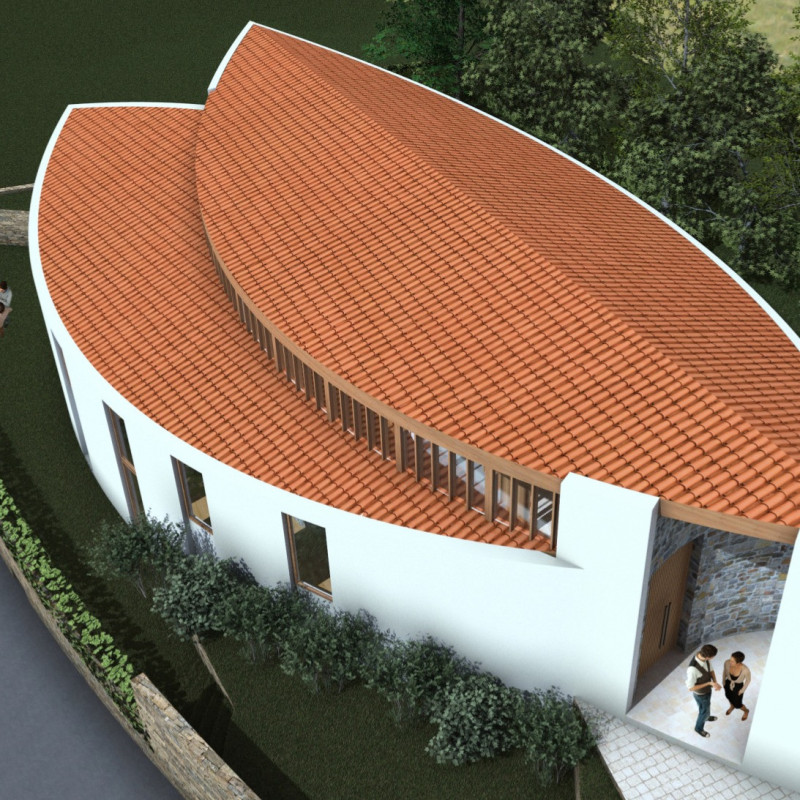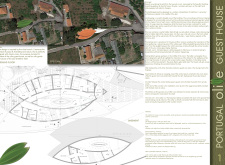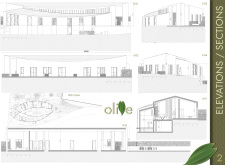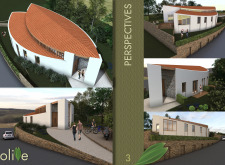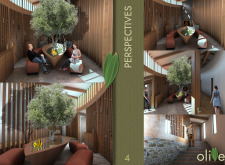5 key facts about this project
## Overview
Located in Portugal, the Olive Guest House is designed as a retreat that balances functionality and a deep appreciation for nature. Drawing inspiration from the olive branch, a cultural emblem of peace and friendship, the structure integrates seamlessly into its environment, reflecting both local heritage and modern architectural principles. The design aims to provide a tranquil experience for guests, encouraging engagement with the surrounding landscape.
## Site Planning and Landscape Engagement
The site is strategically positioned on a gently sloping terrain, facilitating interaction with the natural environment. Pathways meander through the abundant greenery, accommodating both pedestrians and cyclists, while cascading gardens and terraces foster contemplation and connection with nature. The design promotes accessibility and interaction, enhancing the guest experience through its harmonious relationship with the landscape.
## Architectural Layout and Material Selection
The organic form of the building is inspired by the shape of an olive leaf, emphasizing a fluid connection to the natural surroundings. Key areas include:
- **Public Spaces**: Centralized around a large inner courtyard, dining and kitchen areas are designed to encourage communal gatherings. Expansive windows invite natural light and outdoor views, reinforcing the connection to nature.
- **Private Accommodations**: Guest rooms prioritize comfort and intimacy, with orientations that overlook the garden and provide direct access to outdoor areas.
- **Wine Cellar**: Situated in the basement, this space integrates local wine culture and encourages social interaction.
Materiality emphasizes sustainability and local identity, featuring white block walls for thermal insulation, reclaimed wood for internal elements, traditional terra-cotta tiles for roofing, and locally sourced stone for external elevations. Innovative window placements enhance natural light penetration, while a central olive tree in the communal area enriches the indoor environment, creating a welcoming atmosphere.


